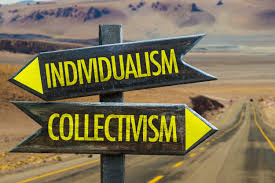
Breaking News
 Supreme Court Won't Exempt California Schoolchild From Vaccination Mandate
Supreme Court Won't Exempt California Schoolchild From Vaccination Mandate
 The Gold And Silver Boom Is Ominous
The Gold And Silver Boom Is Ominous
 "Coup d'Flat": Billionaire-Funded 'No Kings' Color-Revolution Turns Into White
"Coup d'Flat": Billionaire-Funded 'No Kings' Color-Revolution Turns Into White
Top Tech News
 3D Printed Aluminum Alloy Sets Strength Record on Path to Lighter Aircraft Systems
3D Printed Aluminum Alloy Sets Strength Record on Path to Lighter Aircraft Systems
 Big Brother just got an upgrade.
Big Brother just got an upgrade.
SEMI-NEWS/SEMI-SATIRE: October 12, 2025 Edition
 Stem Cell Breakthrough for People with Parkinson's
Stem Cell Breakthrough for People with Parkinson's
 Linux Will Work For You. Time to Dump Windows 10. And Don't Bother with Windows 11
Linux Will Work For You. Time to Dump Windows 10. And Don't Bother with Windows 11
 XAI Using $18 Billion to Get 300,000 More Nvidia B200 Chips
XAI Using $18 Billion to Get 300,000 More Nvidia B200 Chips
 Immortal Monkeys? Not Quite, But Scientists Just Reversed Aging With 'Super' Stem Cells
Immortal Monkeys? Not Quite, But Scientists Just Reversed Aging With 'Super' Stem Cells
 ICE To Buy Tool That Tracks Locations Of Hundreds Of Millions Of Phones Every Day
ICE To Buy Tool That Tracks Locations Of Hundreds Of Millions Of Phones Every Day
 Yixiang 16kWh Battery For $1,920!? New Design!
Yixiang 16kWh Battery For $1,920!? New Design!
 Find a COMPATIBLE Linux Computer for $200+: Roadmap to Linux. Part 1
Find a COMPATIBLE Linux Computer for $200+: Roadmap to Linux. Part 1
Individualism and Self-Determination in the American Tradition

In this tradition, self-determination is understood as an emanation of individual liberty, rather than as a right vested in the "nation" or the "state" as a collective unit. In his book Liberalism, Ludwig von Mises explains,
To call this right of self-determination the "right of self-determination of nations" is to misunderstand it. It is not the right of self-determination of a delimited national unit, but the right of the inhabitants of every territory to decide on the state to which they belong.
It is in this context that the "rugged individualism" of the American frontiersmen, as they fought for independence in both the Revolutionary War and Lincoln's War, should be understood—as a struggle by each individual for his own liberty and right to self-determination. In his book Born Fighting: How the Scots-Irish Shaped America, James Webb depicts the Scots-Irish frontiersman as a self-reliant individualist, quoting Vernon Louis Parrington:
They were desperately poor; the available lands near the coast were already preempted; so armed with axes, their seed potatoes, and the newly invented rifle, they plunged into the backwoods to become our great pioneering race… A vigorous breed, hardy, assertive, individualistic, thrifty, trained in the democracy of the Scottish kirk, they were the material out of which later Jacksonian democracy was to be fashioned, the creators of that western type which in politics and industry became ultimately the American type.
Webb describes the Scots-Irish as "radical individualists" who never exhibited the collective group-identity that dominates today's socialistic identity politics, where people claim to have rights based on their race or sex. To the Scots-Irish individualists,
In their insistent individualism they are not likely to put an ethnic label on themselves when they debate social issues. Some of them don't even know their ethnic label, and some who do don't particularly care. They don't go for group-identity politics any more than they like to join a union.
Webb explains how this understanding of the individual as independent from the group came to be regarded more broadly as the traditional hallmark of American individualism. He further observes that the Scots-Irish had "a culture of isolation, hard luck, and infinite stubbornness." He adds that their independent spirit was such that they even "rejected" what they saw as "Virginia's Tidewater 'Cavalier' aristocracy"—an attitude that was in keeping with their "defiance of authority."

 Insurrection Anyone?
Insurrection Anyone?


